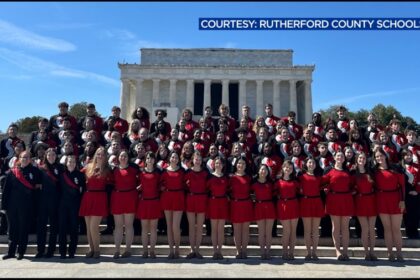
Tennessee schools would be able to refuse undocumented students, under a new proposal from Republican leaders in the statehouse. The measure goes against U.S. Supreme Court precedent by design.
House Majority Leader William Lamberth, R-Portland, said Thursday that he filed the bill as a challenge to Plyler v. Doe, a 1982 Supreme Court decision that established the right to education for students, regardless of immigration status.
The legislation comes on the heels of a sweeping immigration bill that passed the statehouse last Thursday. A week prior, the school board in fast-growing Rutherford County passed a resolution, urging lawmakers to act on immigration.
The district said it has seen a 140% increase in English language learners, requiring an additional 44 positions. The resolution asked lawmakers to advocate for the “closure of our nation’s borders” and increased funding from the federal government.
“If they don’t like that, they can go to some state that’s a sanctuary state, but we’re not going to take money away from the educational system that is there for legal residents and U.S. citizens and educate children that are illegal immigrants,” Lamberth said. “It’s just where we stand on the issue.”
If it becomes law, Lamberth said that he’s expecting a legal challenge will put the issue before the courts — a strategy that has worked for Republicans in the past. The reversal of federal abortion rights started with a 2018 law passed in Mississippi.
“We’ve won some of those. We’ve lost some of those. But we’re going to continue to push the barriers,” Lamberth said. “We are the voice of the people in this state.”
American Civil Liberties Union attorney Stella Yarbrough told WPLN News that if a challenge to this bill makes it to the current U.S. Supreme Court, things could go differently than they did in 1982.
“They have taken a shredder to a lot of longstanding Supreme Court cases, and so I think that they’re reading the tea leaves correctly,” Yarbrough said. “If they can tee up challenges to cases that were close calls, I think that they are correct that they are going to get a second bite at the apple.”
Despite the nationwide risk, Yarbrough said it’s important to continue challenging potential laws like this one.
“Even if you think you’re going to lose in the long run, putting off that loss — even for a day, a week, a year — can be meaningful,” Yarbrough said. “As long as they’re passing unconstitutional laws, I’m going to keep suing, and I’m going to try to keep fighting, even if I think we might lose long-term.”
Tennessee was before the U.S. Supreme Court in December to defend its ban on gender-affirming care for minors. When that ruling comes out this summer, state Republicans will see if their strategy works with the Supreme Court’s current makeup.




